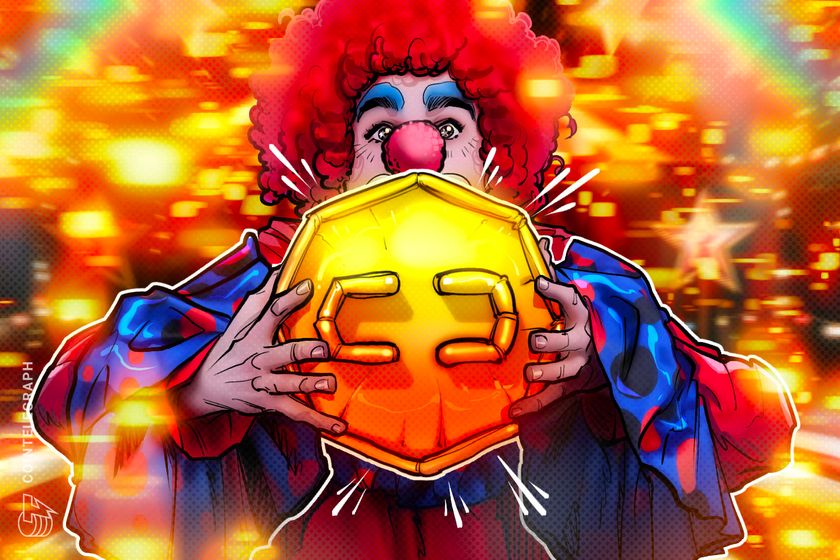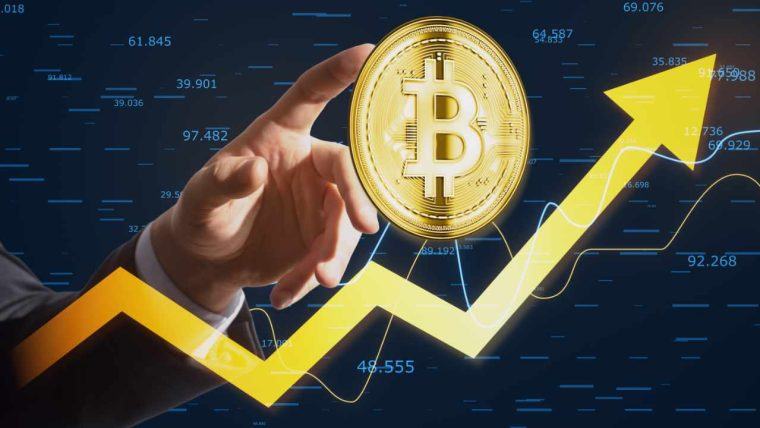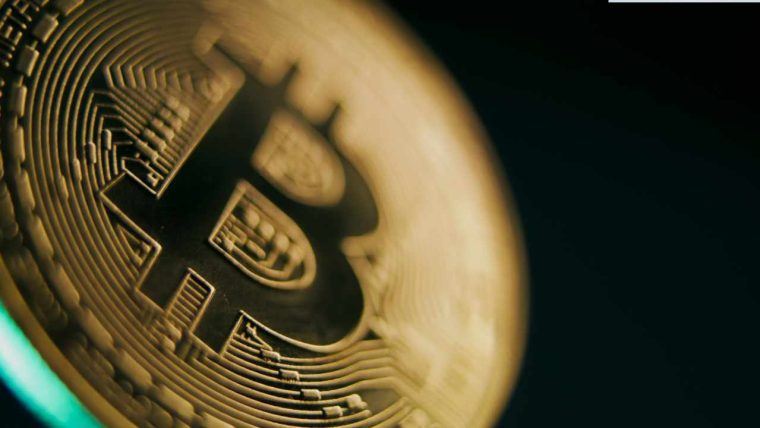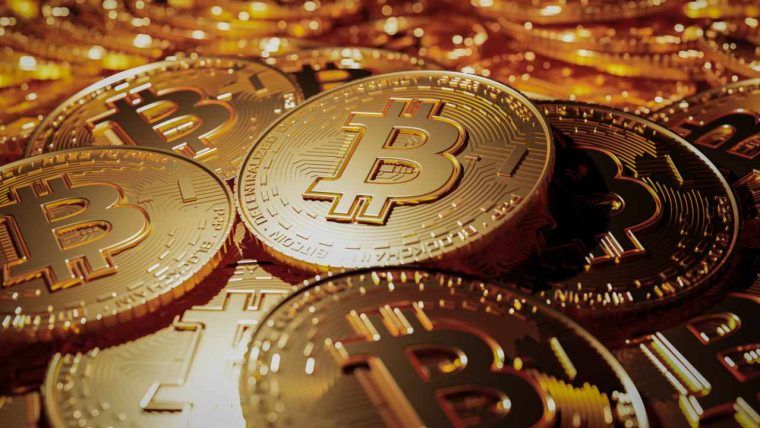
a month ago Cointelegraph
## What is shilling in crypto?
_At its core, shilling is the act of artificially promoting a cryptocurrency or token, often with exaggerated claims, to increase its price or popularity. _
But what’s the goal?
Hype it up, get others to buy in, and then cash out, leaving latecomers holding the bag.
Shilling can come from anyone: influencers, anonymous accounts or even high- profile figures with political or financial clout. The common thread is manipulation: It’s not about educating you or building real value but pumping hype for personal gain.
Unfortunately, the line between enthusiastic promotion and outright deception can be thin, and many fall victim without realizing it. That’s why it’s critical to learn how to spot the signs early.
## 5 red flags you’re being shilled
_Beware of crypto red flags like overhyped promises, anonymous teams, influencer shills, missing products and FOMO tactics — if it smells like a scam, it probably is._
### 1\. Overhyped promises
You’ve probably seen posts that scream:
* “100x potential!” * “Guaranteed returns!” * “This is your ticket to financial freedom!”
These are classic shill tactics. Real, credible projects don’t promise life- changing profits. Why? Because there are no guarantees in crypto or in any investment.
When a project leads with grandiose financial claims rather than actual product value or utility, it’s likely a ploy to stir FOMO and attract unsuspecting investors. The truth is, if something sounds too good to be true, it almost always is.
Remember: The bigger the promise, the bigger the red flag.
### 2\. Anonymous or suspicious teams
In crypto, anonymity isn’t always bad, but when you’re trusting people with your money, transparency matters.
It’s a major red flag when a project has:
* No identifiable team members * Fake names or aliases * Stock photos on its website * No LinkedIn or professional history.
The simple rule is “No face, no funds.”
Scammers often hide behind anonymity because they know they’ll eventually vanish and there’ll be no one to hold accountable. Even worse, some use fabricated credentials or hire actors to pose as team members.
Before investing, check whether the founders or developers have any verifiable history. Do they have prior experience in blockchain or startups? Have they launched anything successful before?
### 3\. Influencer spam and paid promotions
One day, no one’s talking about a particular coin — the next, your feed is flooded with influencers hyping it up. Sound familiar?
This sudden burst of attention is often coordinated with a paid promotion campaign disguised as “genuine enthusiasm.”
Many influencers fail to disclose sponsorships, even though it’s required by law in many countries. The US Securities and Exchange Commission and the Federal Trade Commission (FTC) have cracked down on this in recent years.
Take, for example:
* Kim Kardashian, who was fined $1.26 million in 2022 for promoting EthereumMax without proper disclosure. * Floyd Mayweather Jr., who was sued for endorsing the same project at a paid event. * BitBoy (Ben Armstrong), who faced legal action in multiple lawsuits for promoting scam tokens to his audience.
If you notice multiple influencers promoting the same project in a short time, especially without using labels like #ad or #sponsored, it’s a strong indicator of a shill campaign.
Don’t mistake volume for value. Hype doesn’t equal legitimacy.
### 4\. No real product or roadmap
If you visit the project’s website, it looks sleek, maybe even impressive. But where’s the product? Where’s the code?
Shilled tokens often rely on flashy marketing but have no working application, no GitHub code and no actual use case. Everything is either “coming soon” or buried behind vague promises.
Ask yourself:
* Can I use the platform or app today? * Is there a white paper that makes sense? * Do they have public repositories or open development?
If all you’re seeing is a landing page and a vague roadmap that’s been “coming soon” for months, that’s a major red flag.
### 5\. Pressure tactics and FOMO
Time pressure is a psychological weapon, and shillers know how to use it.
Watch out for lines such as:
* “Presale ends in 2 hours!” * “Only 1,000 spots left!” * “If you don’t buy now, you’ll miss out forever!”
These tactics prey on your fear of missing out (FOMO) and push you into making impulsive decisions without research.
But crypto isn’t a sprint; it’s a long-term game. Anyone trying to rush you into buying likely has something to hide. Solid investments don’t need fake urgency.
Take a breath, step back, and ask yourself: Am I buying because I believe in this project or because I’m being manipulated?
_**Did you know?** The Commodity Futures Trading Commission (CFTC) secured a $128-million judgment against Ryan Mitchell Pope, Daniel Samuel Bishop and their company EmpiresX for operating a fraudulent forex and cryptocurrency investment scheme that defrauded over 12,500 victims._
## Is shilling illegal in crypto? Can influencers be sued?
Shilling isn’t just unethical in many cases — it’s also illegal.
In the world of crypto, undisclosed promotions are a major legal risk. If someone is paid to promote a token or project but fails to reveal that financial connection, they could face fines, lawsuits or even criminal charges. This is especially true if the promoted token is later classified as a security under US law.
Regulators like the SEC, FTC and CFTC have all cracked down on this behavior.
Their targets have included:
* Influencers who failed to disclose paid promotions * Promoters who misled investors with false claims * Individuals who ran pump-and-dump schemes using social media.
Francier Obando Pinillo, a pastor from Miami, was indicted on 26 fraud counts for running a crypto scam through “Solano Fi,” defrauding investors of millions from 2021 to 2023. He allegedly used his church, social media and false promises of 34.9% monthly returns to lure victims. The platform showed fake gains but blocked withdrawals, while funds were diverted for personal use. Pinillo was arraigned in Richland, Washington and faces up to 20 years in prison if convicted.
As crypto becomes more mainstream, expect stricter regulations and more consequences for shillers.
_**Did you know?** Argentine President Javier Milei has dissolved the special task force investigating the LIBRA cryptocurrency scandal, a project he promoted in February 2025 that surged to a $4.5-billion valuation before crashing by over 97%. The task force, created by Milei himself, was disbanded via Decree 332/2025, citing that it had fulfilled its purpose. However, critics argue that no official findings were released, and judicial investigations into Milei and his associates continue._
## How to protect yourself from shilling scams
_Do your own research, verify the team and utility, ignore hype and influencers, and stay alert to pump-and-dump schemes to avoid crypto shilling traps._
Let’s understand how you can protect yourself from shilling scams in crypto:
* **Do your own research (DYOR):** Always research the project, the team behind it and the data supporting the claims. Don’t rely solely on hype or influencer recommendations. Look into onchain data, GitHub activity and the project’s utility to make informed decisions. * **Verify the team:** A legitimate crypto project should have a transparent and credible team. If the developers are anonymous or have no professional profiles (like LinkedIn), that’s a red flag. Always check the team’s past projects and credibility before investing. * **Look for real utility:** Does this project actually solve a problem? A genuine project should have a working product or solution, not just promises. Avoid projects that lack real-world utility or are still in “coming soon” stages for extended periods. * **Ignore the hype:** If a token is suddenly trending on social media or being aggressively promoted, don’t let FOMO influence your judgment. Shillers often rely on emotions to push their agenda, so it’s essential to evaluate projects based on their merits, not just popularity. * **Stay skeptical of influencers:** Influencers with large followings may be paid to promote certain tokens. Before taking their advice, ask yourself, What’s their incentive? Verify the promotion is legitimate and disclosed as paid or sponsored. Always cross-check the information with independent sources. * **Watch for pump-and-dump schemes:** Be cautious of sudden price spikes followed by rapid drops. These are often signs of pump-and-dump schemes where the token’s value is artificially inflated by coordinated buying and then quickly sold off, leaving investors with losses. Always monitor price trends and be wary of sudden, unexplained increases in value.





